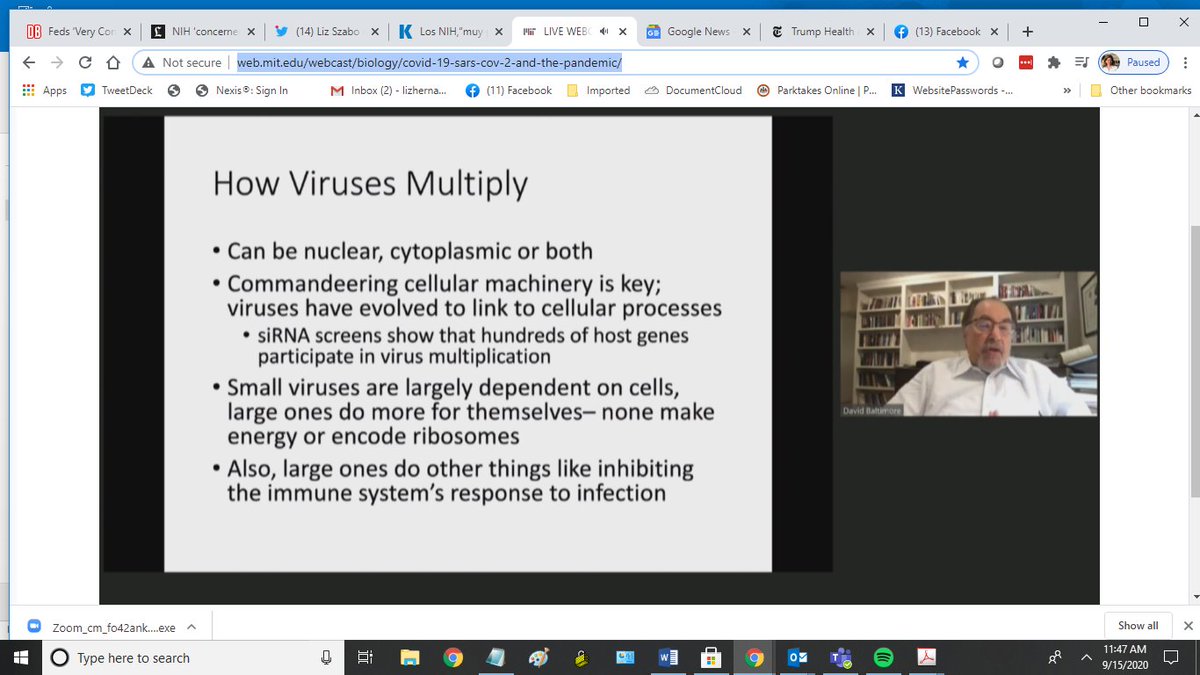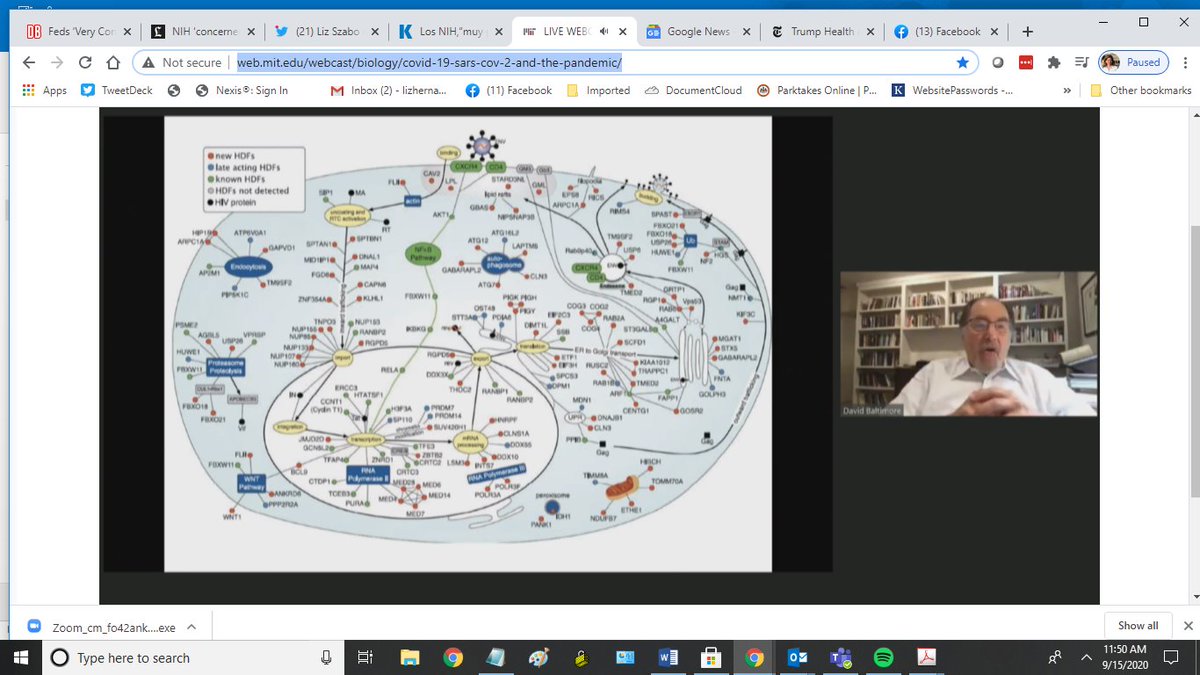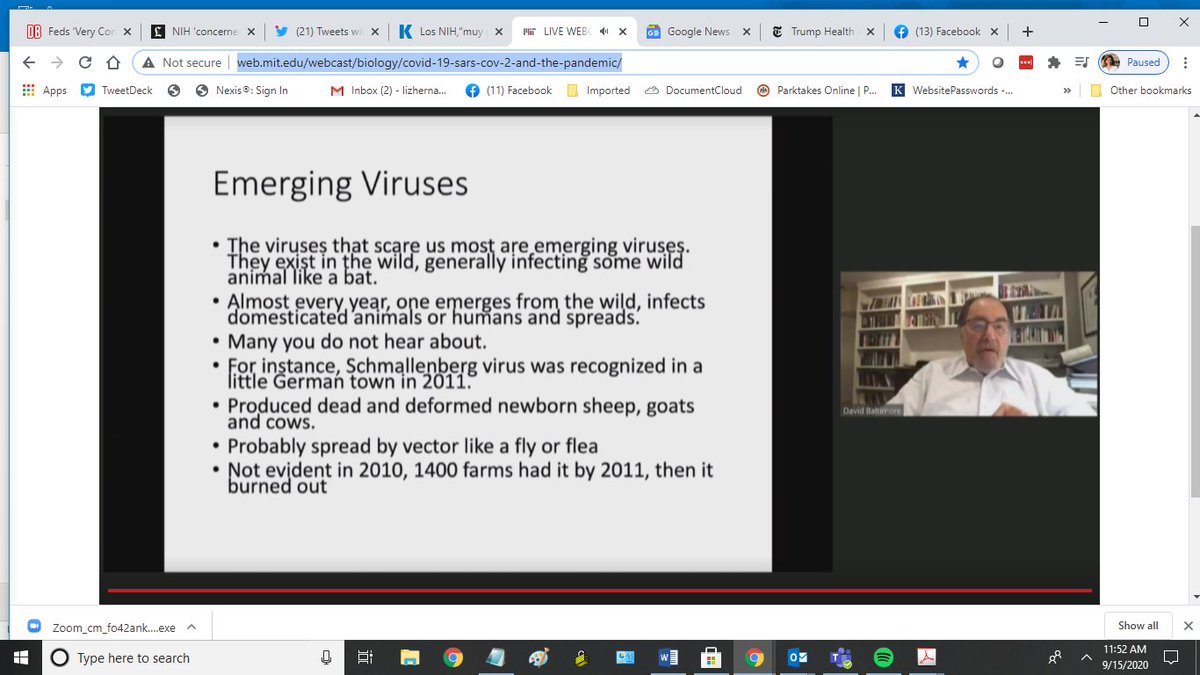Excited to be enrolled in a free @MIT class on coronavirus. Today& #39;s lecturer is David Baltimore of MIT and CalTechn. #Follow this thread for live tweets. http://web.mit.edu/webcast/biology/covid-19-sars-cov-2-and-the-pandemic/">https://web.mit.edu/webcast/b...
LIVE: Nobel Prize winner David Baltimore says, "I have a great love for viruses.... I never imagined that at the end of my career, which is now... a virus would rule the world."
LIVE: David Baltimore says viruses "seem to have evolved fro bits and pieces of the living world."
LIVE: David Baltimore: All organisms use DNA to store their genetic information... except viruses. Some viruses use RNA. "They are tiny objects consisting of a protected nucleic acid core that lack ribosomes... and can replicate themselves only by penetrating living cells."
LIVE: David Baltimore says there& #39;s no agreement on whether viruses are alive, since they can& #39;t replicate by themselves, unless they invade a living cell and take over its reproductive machinery. Viruses are little bigger than organelles.
LIVE: David Baltimore says there are "an uncountable number of viruses." There are at least 1500 *species* of viruses. "They& #39;re all parasites. They all grow only inside living cells."
LIVE: David Baltimore says viruses may have evolved from the "pre-cellular" world, before there were cells. "There are genes with no known relatives, which presumably evolved within the virus itself."
LIVE: David Baltimore, who won Nobel Prize in 1975 for his work on retroviruses, is lecturing online about viruses. Viruses can multiply 100-fold in 20 minutes. "Viruses have to continually find new hosts that haven& #39;t experienced the virus."
LIVE: David Baltimore is making it easier for me to transcribe his lecture. Trying to live tweet @DrPaulOffit is much more challenging because he talks too fast.
LIVE: David Baltimore says viruses sometimes jump from one species to another. When they come into the human world, we say they have "emerged." Which means we didn& #39;t think about them before.
Slide: "This is what it looks like inside a cell."
Slide: "This is what it looks like inside a cell."
LIVE: David Baltimore says "emerging" viruses that jump from wild animals to domesticated animals or humans are the "ones that worry us the most," b/c they often become much more virulent when they find a new host.
LIVE: David Baltmore mentions Schmallenburg virus, which emerged on a farm in 2010 and within a few years had reached 1400 farms before burning itself out.
LIVE: David Baltimore says the viruses we care about the most are HIV and the novel coronavirus, which don& #39;t have a vector and are spread from human to human. "Viruses are ubiquitous. There are viruses of all the organisms in the oceans."

 Read on Twitter
Read on Twitter




